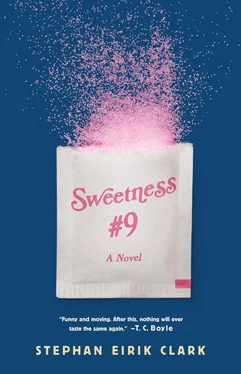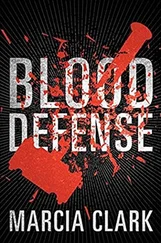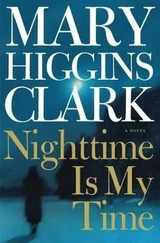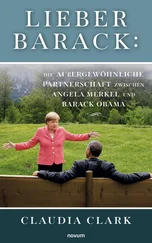Betty knew all that Ernst had done for me, so she didn’t protest when she got home and saw him camped out in his armchair in the living room. No, rather than question why I hadn’t at least consulted her, she called her brother Peter, who had no obligations in New Hampshire other than those imposed upon him by his sponsor (go to meetings, be of service).
“He’ll fly down tomorrow,” she said, after we had gotten Ernst to bed in the study once occupied by Aspirina.
An hour or two later, after we had gone up to our room and gotten in beneath the covers, she said something else. “What do you think Eliza meant when she wrote ‘Now it’s your turn to learn more than you ever wanted to know’?”
We sat side-by-side in the bed, up against the headboard, the remote down in the valley of the covers between us. I wasn’t sure what to say, but hearing in Betty’s voice the same thing that I had felt when I’d first read those words, I thought it only right to offer. “Would you like a lorazepam?” I said.
There are those amongst you who will say that the health of one individual is not connected to the health of his country. I wish nothing more than to agree with you, but after my “illness,” as I spoke of it in court, I have come to accept that while the healthy may be able to disregard the state of the nation, the infirm have no such luxury. The American Condition is real, I am saying. It can trigger in you a response as wild as any new regime of medication. For this reason, I must ask for your patience while I introduce one last movement into this seven-day symphony, if only because in the end it plays such an important part.
I first became aware of it on Monday morning, while driving in to work. The news station on the radio said an explosion had gone off at a Save-a-Lot supermarket in Ewing Township. Not a big one, but powerful enough that a woman was badly burned and blinded in one eye when she opened the fogged doors on the frozen food aisle and reached inside for a box of blueberry waffles. I didn’t think anything more of this until an hour or so later, when I came out of my office to find Beekley going into the supply closet for the old Zenith television set that we only hauled out for that rare natural disaster or moment of geopolitical import.
“Is it Clinton?” I quickened my pace down the hall. “Did they finally come for Clinton?”
Beekley turned in to the break room, trailing the cord. When I got in there after him, Koba was already down on his hands and knees, plugging the set into the outlet behind the emergency Y2K pantry, which by now was half filled with everyone’s least favorite canned goods. When Koba stood, slapping his hands clean, Beekley reached for the rabbit ears and began working at them like a dowser searching for water.
“There!” I threw my hand out as the image of a supermarket rolled into place.
Beekley stepped away from the set as if from a house of cards. A young Asian-American woman stood in the foreground of the store, backed by a line of yellow police tape. She spoke in that voice newscasters reserve for airplanes that have fallen out of the sky.
“On the heels of attacks this morning in Ewing Township and Poughkeepsie—”
“What happened in Poughkeepsie?”
“—violence came to the Acme supermarket in Doylestown a little after nine a.m.”
“Was it another explosion?”
“This time the explosive device rang out on not one aisle but three, each evenly spaced throughout the store.”
Panic ensued, the reporter said. With Thanksgiving shoppers clogging the aisles, the strong trampled the weak, the young pushed aside the old, and the uncoordinated and sickly threw themselves over the glut of shopping carts that had piled up at the front doors.
“Forget your worst day at Costco,” Beekley said, as the camera panned live across the scene. “This is a modern-day Gettysburg.”
In the parking lot, men and women, both young and old, were sitting on overturned shopping carts and the bumpers of fire trucks; some lay with their heads in the laps of strangers as they were treated for broken arms, fainting spells, and minor cardiac events; others stood alone like stoics, staring off into a future they couldn’t comprehend or didn’t wish to join. Seventeen people in all had been injured, four seriously.
The reporter pointed to a boxy red truck that had Bomb Squad emblazoned on its side in large reflective print. “At the moment,” she said, “a robot the size of a riding lawnmower is moving up and down the aisles inside, looking for any evidence of additional danger. The robot has four cameras attached to it, including one at the end of an extendable arm that can rise to a height of ten feet. Only when it’s determined that it’s safe will officers from the Bomb Squad”—again she glanced at the truck—“move in. But even after they do, many people here in Bucks County, if not the entire tri-state area, may think twice the next time they do their shopping. Reporting live for WKLA News in Doylestown, Pennsylvania, this is Sandra Wu.”
I called Betty that day to see if she’d like to have lunch at the English pub on the ground floor of her building. It was a time to be with friends and family, those you loved. But she was in a small town on the outskirts of Amish Country, speaking with the mayor about the prospects of her company’s proposed consulting contract. Hearing she wouldn’t be back for another couple of hours, I drove home to watch the news in the living room.
Priscilla hadn’t gone to school that morning so she could care for Ernst. She sat alongside me on the sofa, the television tuned to one of the news channels. The FBI, the ATF, and a special investigator from the FDA had gotten involved. Tips were coming in by the hundreds to a 1-800 number that had been flashing across the screen for the better part of the morning. As I ate a roast beef sandwich over a plate I balanced on my knees, a former mercenary who’d been a part of armed conflicts in seven countries on four continents described the type of “small-scale explosive device” that might have been used at each of the attacks and how the person or persons involved might have acquired the necessary materials and expertise. His words washed over us like a Latin mass. Nitrogen, organic peroxide. Heat, friction, shock. Very unstable. Detonated by cell phone or timer, maybe packed in dry ice.
“You’d be surprised,” he said. “These types of explosives may be initiated by a complex chemical reaction, but you can find instructions for them online. It doesn’t take a very smart man. I could leave right now and have a box of Cheerios blowing up in your hands by early evening.”
News of another school-yard shooting would have run off me like water down a duck’s back, but this was something else. We weren’t talking about the open market of Gdansk or Kharkov, where butchers hacked into the joints of freshly killed beasts, and a pig’s head hung for sale on a swaying metal hook. This was the American supermarket, a brightly lit place that took double coupons. Who could bring violence to a place like that? And why?
On the drive in to the airport that afternoon, I hit one of the preset buttons on my radio and heard two familiar voices.
“There’s this religious nut out there saying this is God’s punishment for our cultural degradation.”
“Gays, Mark. He says it’s because we’re not roasting gays on the spit. At least that seemed to be the gist of it.”
“That’s right, Bonnie. But you know what? It’s not God who’s angry, it’s our bodies. Poison in, poison out. It’s that simple, America. These attacks are just the fall-out of a food system run amok.”
“You know what everyone needs to do, Mark?”
Читать дальше












